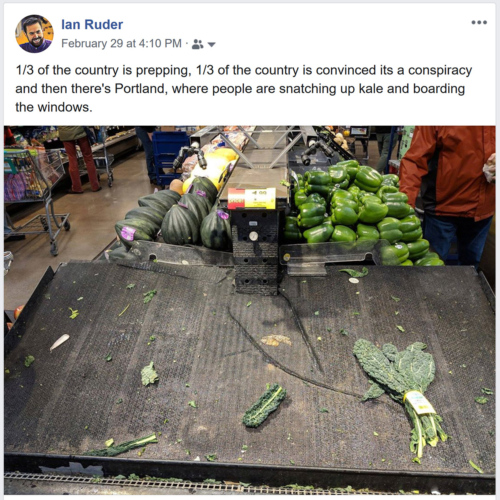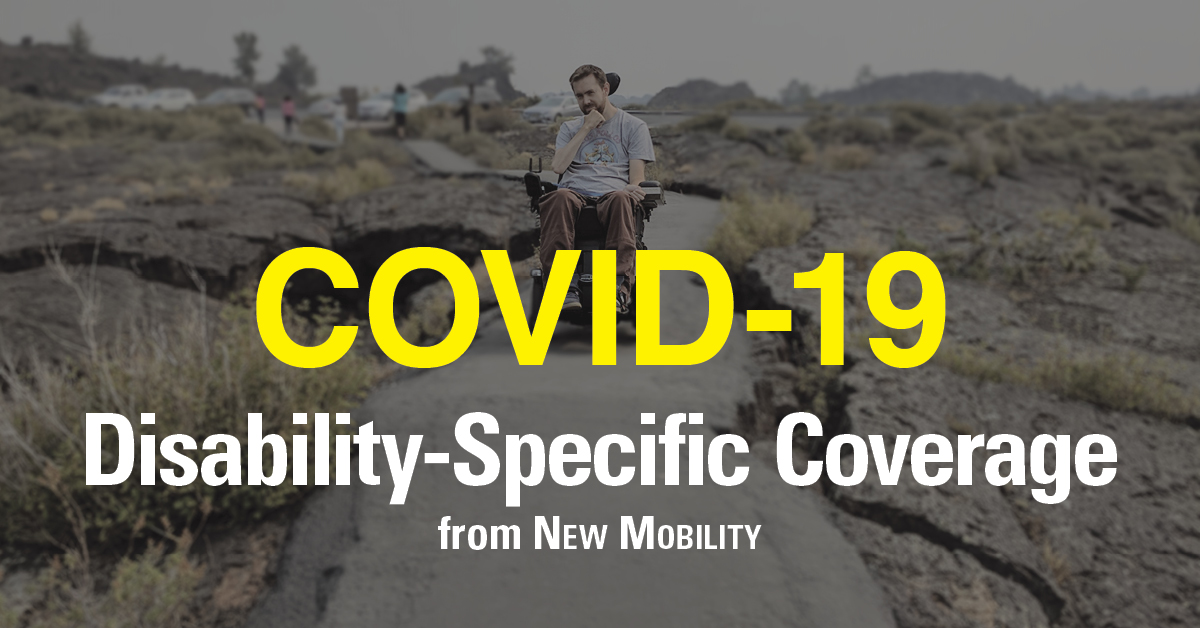Humor has always been my chosen weapon for combating depressing news. It helped me cope with my spinal cord injury and has helped me deal with difficult situations many times since. When I posted a photo of a local supermarket produce section that had been stripped bare of kale as local shoppers reacted to the early warnings about COVID-19, it seemed funny:

Over a week later, I’m not laughing. When I posted that, there had only been one confirmed case in my state. Now, the governor of Oregon declared a state of emergency. The number of confirmed cases is growing. If that wasn’t enough evidence that things are serious, now Costco has stopped handing out free samples.
There’s a good argument the majority of the population should just chill out, wash their hands regularly and use common sense. It appears that for most people, COVID-19 only results in mild symptoms, so the idea of letting the virus run its course and not spreading it to others who may be at higher risk makes sense.
The advice I keep getting hung up on is the recommendation that if you think you are sick or may be infected, then you should stay home and quarantine yourself. That’s good and all, but what about those of us who rely on personal care assistants?
I’ve got a stockpile of meds, supplies and cleaning materials that would make even the most ardent doomsday prepper envious, but without my personal care attendants being able to come to my house, it’s less useful than the blank pages one Australian newspaper printed as a solution to the nation’s toilet paper shortage.
If you think you’re contagious, asking a caregiver to break a quarantine feels kinda shady. Not only are you jeopardizing their health by requiring them to be in your vicinity, but you’re enlisting them in an agreement to act against the common good.
The only guide I could find that speaks to this Catch-22 is published by the Center for Disability Rights. Its Action Steps for Attendant Service Users in Response to Coronavirus Disease 2019 lays out 15 steps to prepare for COVID-19. It’s a useful and needed list, but thanks to its first two steps, I can’t help but think it only serves to highlight the conundrum we are facing:
- Ensure you have sufficient back-up attendants.
- Ensure that you have the ability to get assistance if an attendant does not show up for work.
To the CDR’s credit, it acknowledges the difficulty of hiring attendants, but come on … it’s hard enough when the country isn’t paranoid about a virus that has shown an affinity for nurses and caregivers.
My coworker and noted humorist Seth McBride imagined the sales pitch: “Have I got the job for you … when the person who’s been taking care of me gets COVID-19, and probably passes it on to me, you come in and help me get dressed while I cough on you … oh, and did I mention you’ll make near minimum wage?”
I see the aerial photos of the empty streets in closed Chinese cities and I can’t help but wonder what would happen here if we are forced down that route. I think about all my friends and all the people like me who don’t fit neatly into the solutions currently on the table.
If COVID-19 has shown us anything, it’s that we need better plans and a larger discussion about how we propose to take care of all of our people.
Make sure to read Disability-Specific Recommendations for COVID-19 for more analysis on COVID-19 and its impact on our community.
** This post was originally published on https://www.newmobility.com/2020/03/covid-19-is-no-laughing-matter/


